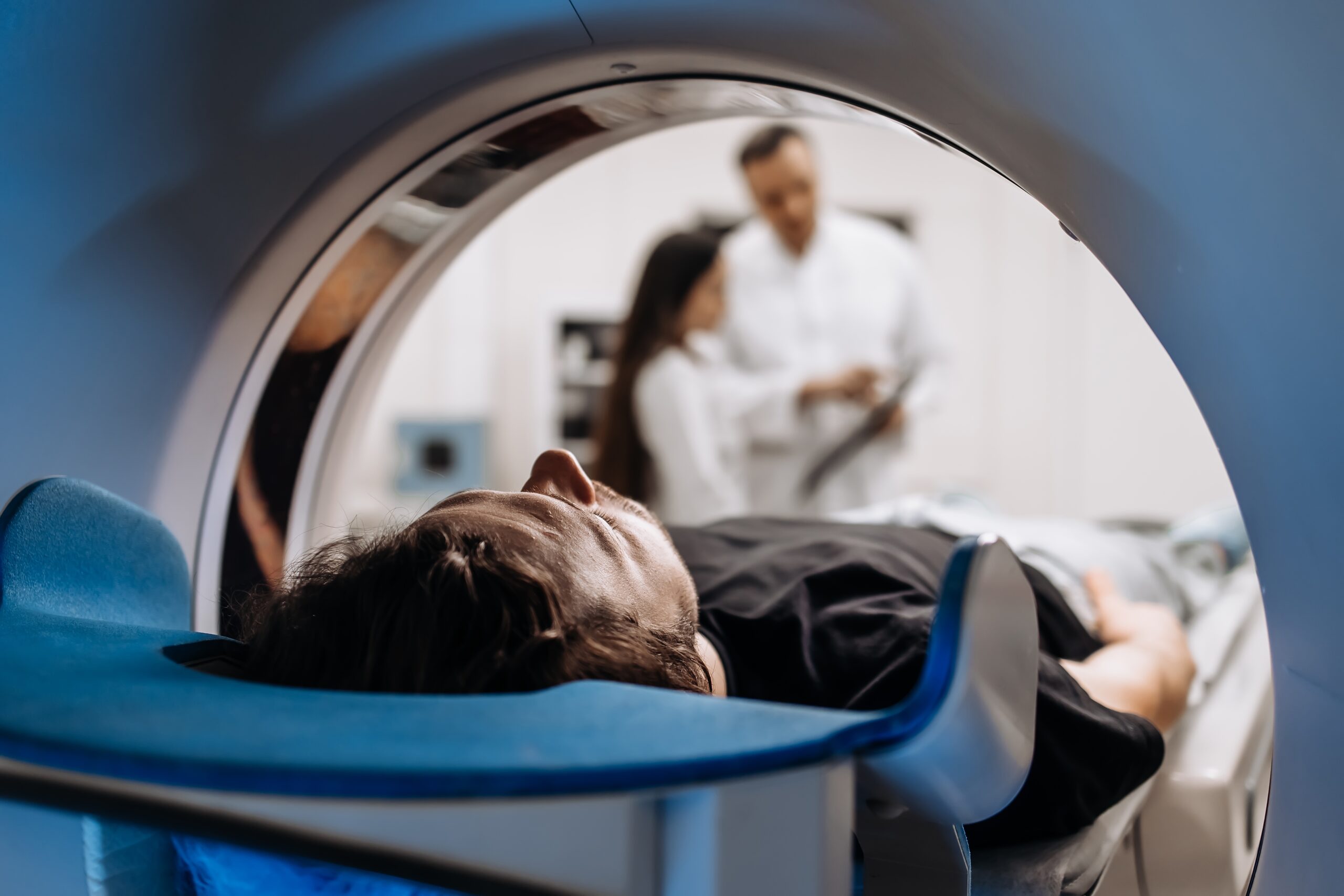To find the cause of a sore knee, aching back, or another irritating or concerning symptom, your physician needs an inside look. For that, they may order a magnetic resonance imaging (MRI) scan of the tissues, muscles, organs, or blood vessels in question to inform diagnosis and a treatment plan. One of your next questions may be, “how long does an MRI take?” The answer: it depends.
Timing Out the Test: Understanding How Long an MRI Takes
All MRI scans use strong magnets and radio waves to create detailed images of internal body parts on a computer for a radiologist to read. However, not all scans take the same amount of time.
How long your test takes from start to finish depends on the type of MRI exam or the body part being scanned. A brain MRI, for example, may take longer than a lumbar spine MRI. Some scans take as little as 15 minutes, while others can take up to 90 minutes. Length of MRI scan time can also be reduced with advanced software technology that can ‘fast scan’ without compromising the quality or accuracy of imaging. On average, MRI scans take between 30 to 60 minutes.
Factors Affecting How Long an MRI Takes
Wondering what helps determine how long your MRI will take? These factors can affect how long you are on the scanner:
- The body part being scanned: Specific imaging protocols or studies are used for different parts of the body, with some taking longer than others.
- Image quality requirements: If initial images are unclear, additional scans may be needed.
- Technology and software used: Advanced MRI machines and FastScan technology can produce faster, high-resolution images.
- Your ability to stay still: Movement may extend scan time by requiring retakes.
Prep Work: Getting Ready for Your MRI Exam
MRI scanners create strong magnetic fields, which can make bringing metal or electronic devices into the exam room dangerous. As a result, you shouldn’t wear jewelry, piercings, hairpins, eyeglasses, or clothes with metal zippers to your exam. Leave cell phones or tablets at home, in your car, or with a friend or family member in the waiting area.
You can also prepare for your scan by:
- Arriving early and arranging for someone to drive you home if you will receive sedation for your test
- Fasting prior to the exam if the imaging team recommends it
- Getting in a calm state of mind before the test by going for a walk, listening to a soothing playlist, or reading your favorite book
- Informing the imaging team about your medical history and allergies, especially if you have an allergy to contrast dye, which is used in some MRI scans to help the radiologist see certain tissues in greater detail
- Notifying the imaging team if you have medical implants
- Wearing loose, comfortable clothing so you can easily change into a hospital gown
Your imaging provider will give you instructions on how to prepare for your MRI scan, especially if there are requirements specific to the type of exam you are having. Instructions and answers to FAQs can also be found on the provider’s website.
What to Expect During and After Your MRI
If you require contrast material, a member of the imaging team will administer it through a small IV needle injection in a hand or arm vein.
You will lie on a table that moves into the large, ring-shaped MRI machine. For people with a history of claustrophobia or anxiety, Windsong Radiology offers the Philips Ambition 1.5T MRI scanner, which is open at both ends, creating a feeling of more space. With this machine, you’ll have the option of listening to music or watching a relaxing video during the test.
The technologist will communicate with you via speaker and tell you when to hold your breath to prevent movement from disrupting the images. You will be able to speak with the technologist at any time during the scan.
Once the scan concludes, the staff will remove the contrast IV needle and cover the area with a small bandage. They will review any post-scan instructions with you before you go, and then you’ll be free to continue with your day. Be sure to drink plenty of water throughout the day to hydrate. A board-certified, subspecialized radiologist will review your images and send a report to your referring physician. The results help your physician diagnose the concern and recommend a treatment plan that works best for you.







